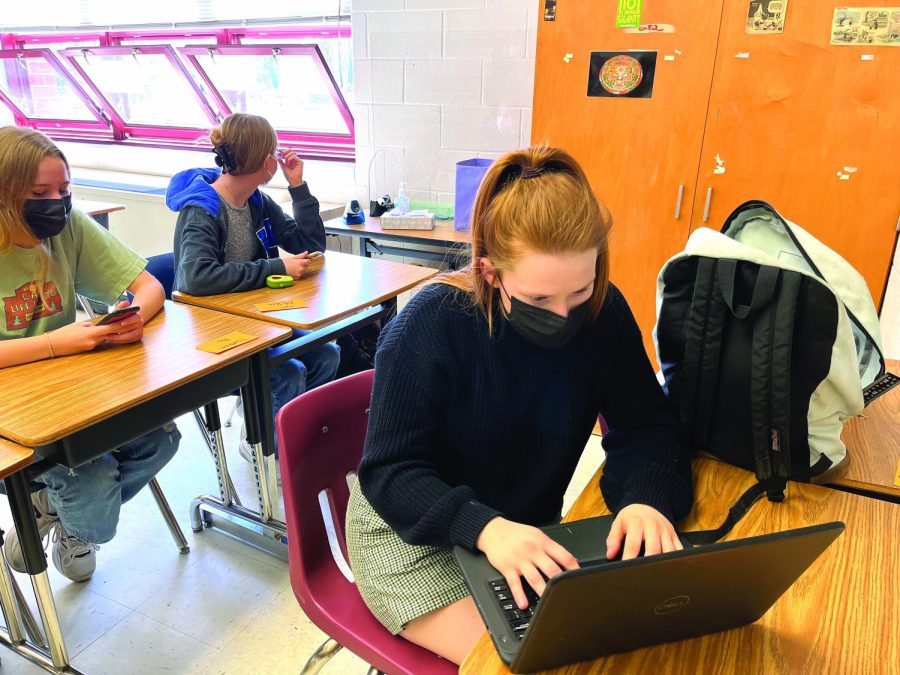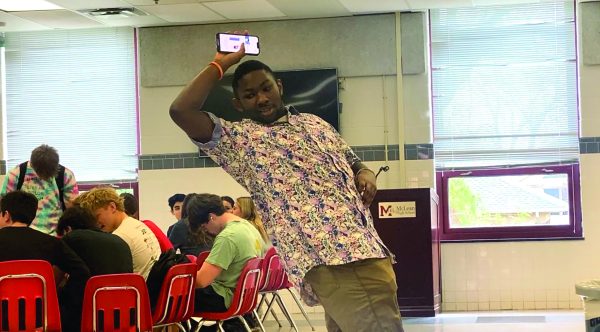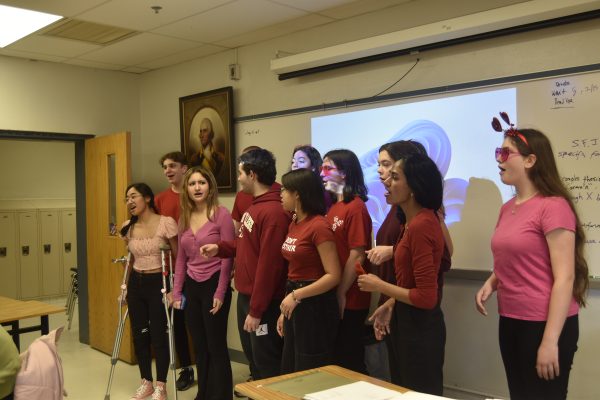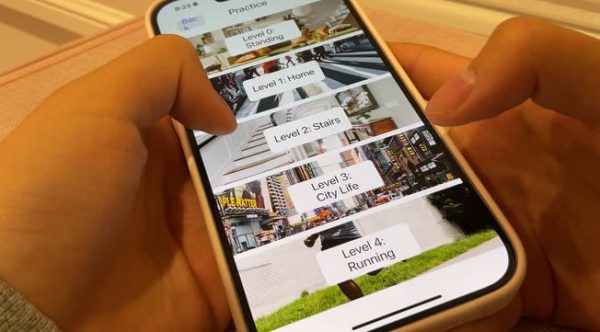504 plans and IEPs support McLean students
504 Plans and IEPs support students with learning disabilities in schools, students speak on their experience with these plans.
The ticking of a clock, clicking of pens and rustling of papers: all part of the test taking experience. For students with learning disabilities, these seemingly mundane details can add an incredible burden of stress. Testing can already be difficult for the average student, but for some, additional accommodations are the only way test administrations and assignments can be made tolerable.
“When I was first diagnosed [with epilepsy], I was staring off every 30 seconds,” senior Linnea Abt said. “I [couldn’t retain] basically all the fundamental information [I had learned].”
One in five children in the US have learning and attention disorders, but these conditions have a much broader definition than typically perceived.
“There’s this stigma about mental health [issues] and a lot of people think it’s [constrained to] the most severe [ends of the spectrum], and that if somebody has a mental disorder it’s super identifiable,” junior Catherine Lucia said. “In reality, it’s a lot more nuanced and people are realizing it does exist in a school setting.”
While McLean does have designated special education classrooms, learning disabilities extend far beyond the four walls of these rooms.
A 504 plan is a legally binding document that falls under Section 504 of the Rehabilitation Act of 1973, which guarantees equal services to Americans with disabilities. These plans provide accommodations to students with impairments that significantly inhibit a major life activity.
“A major life activity could be concentrating, it could be reading, it could be any type of academic momentum in school,” said Denise Wilmot, a 504 coordinator at McLean. “It could be anything that we have to do in order to function in the school system.”
Individual Education Programs (IEP) are are another type of government-mandated accommodations. IEPs fall under the Individuals with Disabilities Education Act (IDEA), and grants students special education services not provided to those with 504 plans.
Dyslexia and non-verbal learning disabilities are common impediments that fall outside of a full special education program’s focus. Other conditions like ADHD, anxiety, and physical disabilities such as hearing loss, may prove to be a hindrance to learning but aren’t technically classified as “learning disabilities.” 504 and IEP plans target students struggling from these medical or psychological issues.
“My epilepsy is in my frontal lobe, so it takes me [more] time to actually process what I’m doing,” Abt said. “So the extra time I get [from the 504] for reading helps.”
504 plans and IEP plans typically cover the conditions in which students must take tests, like being granted extended time on exams or permission to test in empty classrooms. They are personalized, with some students even receiving specific accommodations.
“I still don’t know quick [multiplication] tables,” Abt said. “So I actually get a calculator for basic problems or quick math.”
Once a student is placed on an IEP plan, they are assigned a case manager who handles concerns about school planning.
“If there’s anything else I need, [my case manager] helps me figure things out one step at a time,” Abt said. “Freshman year, they helped me figure out what classes I had to take and what I needed to graduate.”
The accommodations students with 504 and IEP plans receive has roused criticism, though their intention is to make learning equitable. Some students and families argue that the plans give recipients an academic advantage over their peers.
“My sister got a really amazing score on the ACT, and she told her friend who [then] said, ‘Well, it’s not because you’re smart, it’s because you have extended time. I would have gotten a good score, too, if I had extended time,’” said Lucia, who along with her sister has an IEP. “But no, there’s a reason why [students] have [extended time]. We’re not faking this. We do need it.”
Curious students often ask those with 504 and IEP plans about their underlying conditions. To McLean students with disabilities, these probing questions often feel intrusive or antagonistic.
“[When I leave the room for testing] people will ask, ‘Where are you going?’” Lucia said. “It’s a bit alienating being asked, ‘Why do you have extra time?’…I don’t walk around telling people, ‘Oh, by the way, I’m mentally ill.’”
As mental health issues gain recognition, partly because of awareness during virtual school, more community members are discussing these 504 and IEP plans.
“People have been focusing more on mental health,” Lucia said. “I’m thankful that we are finally getting more visibility and care.”
Your donation supports the McLean High School's independent, award-winning news publication.












